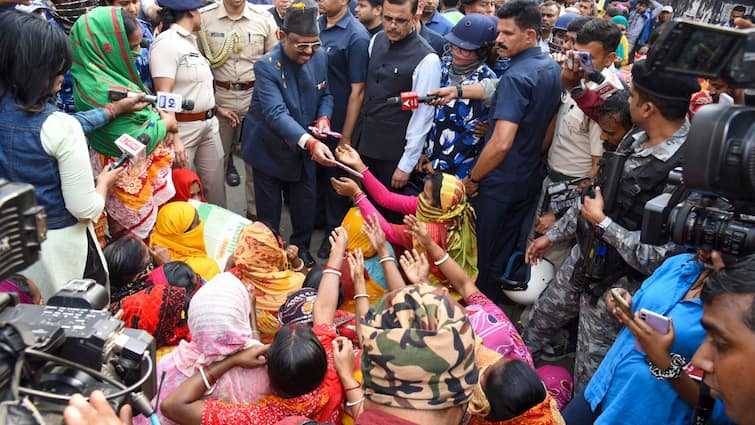The recent outbreak of violence in Sandeshkhali, West Bengal, has once again brought the region into the spotlight, with a Trinamool Congress (TMC) leader alleging that there is an order from Delhi to keep the issue alive. This assertion adds another layer of complexity to an already volatile situation and raises questions about the political motivations behind the violence.
The incident in Sandeshkhali is not an isolated one; it is part of a broader pattern of political strife that has plagued West Bengal in recent years. The state has been a battleground for political parties, particularly the TMC and the Bharatiya Janata Party (BJP), both vying for power and influence. The aftermath of the assembly elections, which saw a heated and contentious campaign, has left deep scars and heightened tensions among rival factions.

SOURCE:- INDIA TODAY
The allegation of an order from Delhi suggests external involvement in perpetuating the issue. It hints at the possibility of a larger political strategy at play, with parties seeking to gain advantage by stoking unrest and destabilizing the region. However, it is essential to approach such claims with caution and skepticism, as they can be part of a broader narrative aimed at delegitimizing political opponents.
SOURCE:- BBC NEWS
At the same time, it is crucial to recognize the underlying grievances and tensions that have fueled the violence in Sandeshkhali. The region has a history of communal tensions and conflict, often exacerbated by socio-economic disparities and political manipulation. Issues such as land disputes, religious animosities, and identity politics have contributed to a volatile environment where violence can easily erupt.
In the aftermath of the violence, there is an urgent need for calm and dialogue. Authorities must conduct a thorough investigation to hold those responsible for the violence accountable, regardless of their political affiliations. Justice must be served to ensure that the rule of law prevails and that impunity is not allowed to flourish.
Moreover, efforts must be made to address the underlying grievances and root causes of the violence. This requires a multi-faceted approach that includes socio-economic development, community engagement, and political reconciliation. Only by addressing the underlying issues can long-term peace and stability be achieved in Sandeshkhali and other conflict-affected areas of West Bengal.
the allegations of political interference in the Sandeshkhali violence underscore the complex dynamics at play in West Bengal’s political landscape. While the truth behind these claims remains to be seen, it is clear that urgent action is needed to address the underlying grievances and tensions that have fueled the violence. Only through dialogue, justice, and reconciliation can the region move towards a more peaceful and prosperous future.
Share your views in the comments

